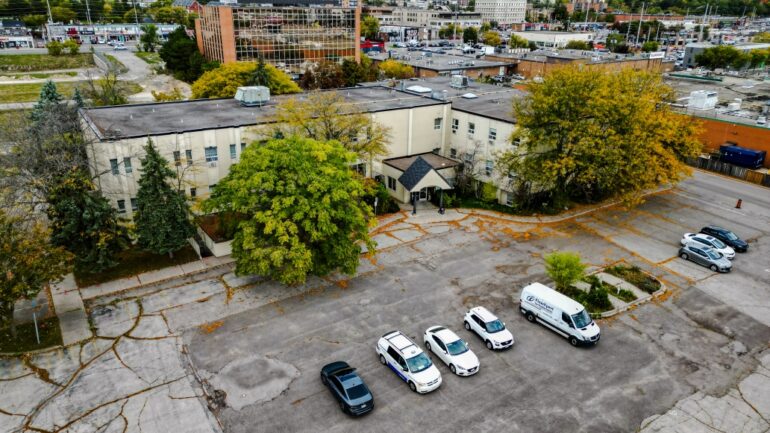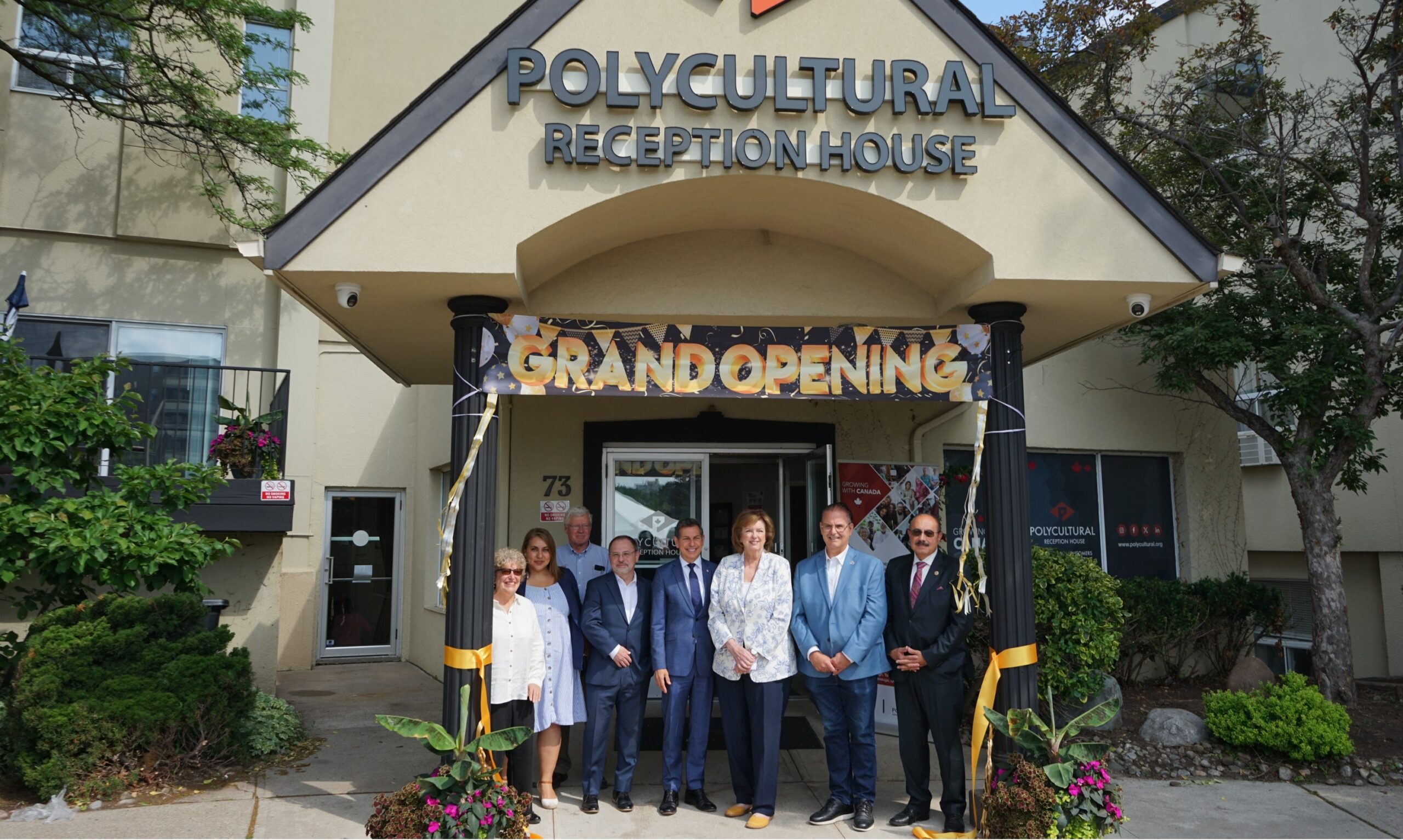Peel Region has found itself at the centre of a deepening refugee housing crisis. In recent years, shelters have been overwhelmed, and newly arrived refugee claimants have increasingly been forced to sleep in tents, churches, and on the streets.
In Peel and Halton, government-assisted refugees have typically been placed in hotels for weeks at a time, with nonprofit agencies like Polycultural Immigrant and Community Services coordinating both accommodations and initial settlement support.
But the hotel model was far from ideal.
“We’d lease part of a hotel, but it was never permanent, we could only stay for 12 to 18 months,” says Marwan Ismail, Polycultural’s Executive Director. “That instability made it difficult to provide consistent care.”
In response, Polycultural made a bold decision: to purchase and transform a building into a dedicated refugee reception centre, the first of its kind in Peel operated by a nonprofit.
The Polycultural Reception House in Mississauga opened its doors in June and now provides a safe and welcoming space for up to 180 government-assisted refugees at a time. The three-storey facility includes 79 rooms, activity spaces, a dining hall, and offices for staff and partner organizations. Residents typically stay for about 21 days, during which they receive three meals a day and access to essential wraparound supports, including help with health cards, school enrollment, and missed vaccinations. During this time, Polycultural also works to secure permanent housing for each family and connects them with a local settlement agency to support their long-term integration.
But securing the $27 million needed to purchase the building wasn’t easy.

“We spoke with a few banks first,” Marwan says. “But their requirements were restrictive and didn’t align with how nonprofits operate, especially with changing government priorities.”
That’s when a referral from a sister agency led them to Vancity Credit Union and its Toronto-based arm, Vancity Community Investment Bank (VCIB).
“Vancity recognized what we were trying to do,” Marwan adds. “They were flexible, responsive, and most importantly, they understood the nonprofit sector. They offered conditions that were very adaptable and suitable for organizations like ours. Even with a year-long negotiation to purchase the building, the whole process went smoothly.”
For Eric Visser, Managing Director of Commercial Real Estate & Climate Finance at VCIB, the project reflected the bank’s commitment to mission-driven lending.
“Families were arriving in search of safety and stability, but the housing options simply weren’t there,” he says. “Polycultural showed real leadership in finding a long-term solution, and we were proud to stand behind it. Nonprofits like theirs are addressing urgent needs that our public systems weren’t built to handle alone, and the right financing is key to help bridge that gap.”
And while the decision to purchase a building carried financial risk, it was one that was carefully calculated. By owning rather than renting, Polycultural expects to save 20 to 25% on operating costs, making the initiative more sustainable in the long run.
“Instead of paying into the hotel and hospitality sector, we’re reinvesting that money back into the not-for-profit ecosystem,” Marwan says. “Every dollar saved helps us do more for the families we serve.”
And the need is only growing. More than 15,000 government-assisted refugees are expected to arrive in Canada this year through the United Nations resettlement program, underscoring the urgency of sustainable, purpose-built infrastructure. While at the centre, residents receive information sessions about Canadian health care, education, and public services – all delivered with trauma-informed care.
“These are people who never planned to leave their homes,” Marwan emphasizes. “They’re fleeing war, persecution, and instability. Our job is to help them feel safe, and to support them as they rebuild their lives.”
And they do. Over the years, many of the families Polycultural supported have even gone on to open businesses and employ others. “They’re working, they’re paying taxes, they’re giving back,” Marwan says.
“We’re helping them now, but they’re helping us too. They become part of the fabric of our communities.”
For Marwan and his team, that’s what makes the work worthwhile. “When you see a smile on the face of a child who finally feels safe,” he says, “it’s the ultimate goal.”



